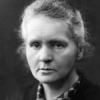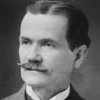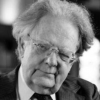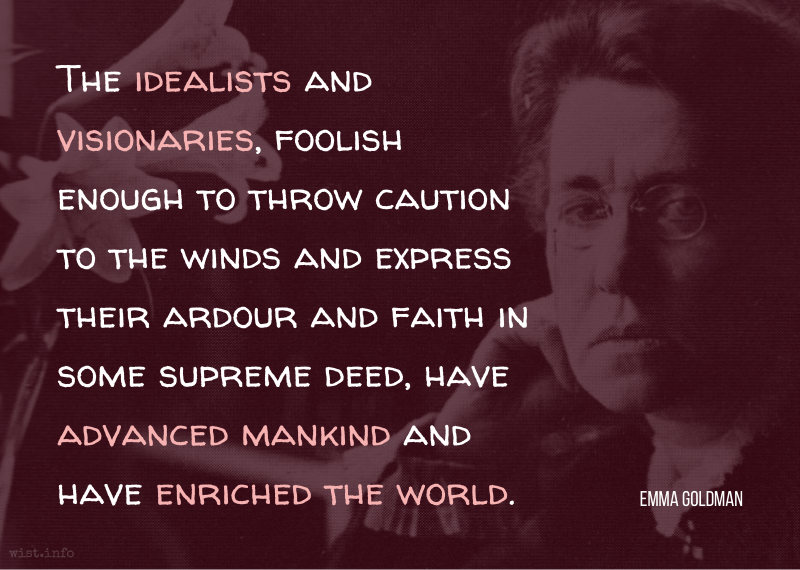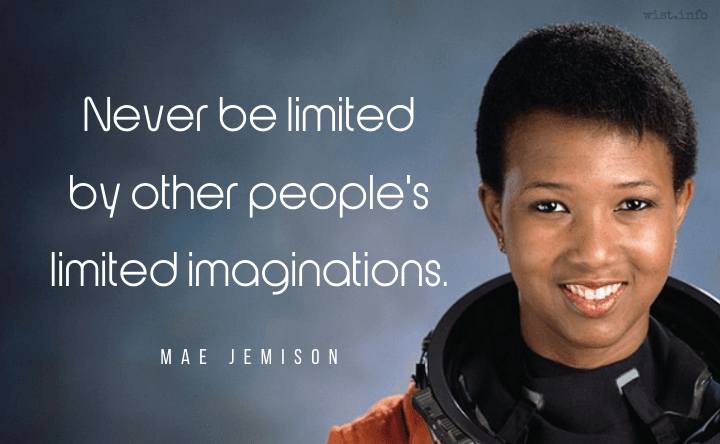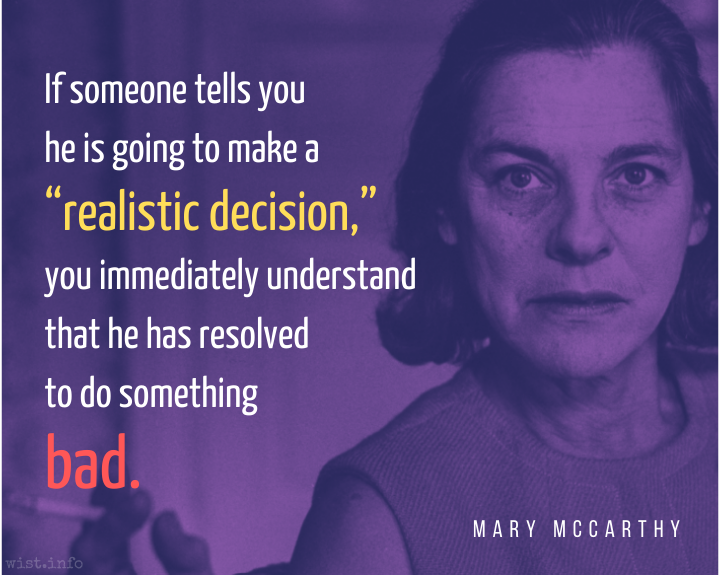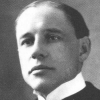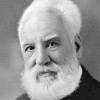The worth of the ideal must be largely determined by the success with which it can in practice be realized. We should abhor the so-called “practical” men whose practicality assumes the shape of that peculiar baseness which finds its expression in disbelief in morality and decency, in disregard of high standards of living and conduct. Such a creature is the worst enemy of the body politic. But only less desirable as a citizen is his nominal opponent and real ally, the man of fantastic vision who makes the impossible better forever the enemy of the possible good.
Theodore Roosevelt (1858-1919) American politician, statesman, conservationist, writer, US President (1901-1909)
Speech (1910-04-23), “Citizenship in a Republic [The Man in the Arena],” Sorbonne, Paris
(Source)
Quotations about:
practicality
Note not all quotations have been tagged, so Search may find additional quotes on this topic.
Designing a dream city is easy; rebuilding a living one takes imagination.
Jane Jacobs (1916-2006) American-Canadian journalist, author, urban theorist, activist
“Downtown Is for People,” Fortune (1958-04)
(Source)
Closing words of the essay.
Originally reprinted in the magazine's topical collection, The Exploding Metropolis (1958). Later collected in Samuel Zipp and Nathan Storring, eds., Vital Little Plans: The Short Works of Jane Jacobs (2016).
Many of us affect a tone of irony about gadgets, as if we lived always in realms above and dealt with trifles only during rare descents from sublime thoughts. The truth is that more and more of the important things in life turn on pinpoints. Our frustrations begin in trivialities — a telephone out of order, a car that will not start, a claim check whose number has been misread. The thing in cellophane that cannot be got at — plain to the sight but sealed like an egg — is the modern version of the torture of Tantalus. Catastrophes we will deal with like heroes, but the bottle top that defies us saps our morale, like the tiny arrows of the Lilliputians that maddened Gulliver and set his strength at naught.
Jacques Barzun (1907-2012) French-American historian, educator, polymath
God’s Country and Mine, Part 3, ch. 12 (1954)
(Source)
I have no dress except the one I wear every day. If you are going to be kind enough to give me one, please let it be practical and dark so that I can put it on afterwards to go to the laboratory.
Marie Curie (1867-1934) Polish-French physicist and chemist [b. Maria Salomea Skłodowska]
Letter to Casimir Dluski’s mother on her offer of a wedding dress (1895)
(Source)
Regarding an offered wedding dress for her marriage to Pierre Curie (1865-07-26). As quoted in Eve Curie Labouisse, Madame Curie: A Biography, ch. 8 (1937) [tr. Sheean (1938)].
If you keep your eyes so fixed on Heaven that you never look at the Earth, you will stumble into Hell.
Austin O'Malley (1858-1932) American ophthalmologist, professor of literature, aphorist
Keystones of Thought (1914)
(Source)
Experience is nearly always commonplace; the present is not romantic in the way the past is, and ideals and great visions have a way of becoming shoddy and squalid in practical life. Literature reverses this process.
Northrop Frye (1912-1991) Canadian literary critic and literary theorist
The Educated Imagination, Talk 3 “Giants in Time” (1963)
(Source)
Wisdom is not gained by knowing what is right. Wisdom is gained by practicing what is right, and noticing what happens when that practice succeeds and when it fails.
Barbara Brown Taylor (b. 1951) American minister, academic, author
An Altar in the World, ch. 2 (2009)
(Source)
The moral case for intervention is only as strong as the practicality of the mission itself. There is no moral case for doing something you’re not capable of doing.
Dexter Filkins (b. 1961) American journalist
“The Moral Logic of Humanitarian Intervention,” New Yorker (16 Sep 2019)
(Source)
From time immemorial the wise and practical have denounced every heroic spirit. Yet it has not been they who have influenced our lives. The idealists and visionaries, foolish enough to throw caution to the winds and express their ardour and faith in some supreme deed, have advanced mankind and have enriched the world.
Emma Goldman (1869-1940) Lithuanian-American anarchist, activist
Living My Life, Part 2, ch. 39 (1931)
(Source)
The case against intellect is founded upon a set of fictional and wholly abstract antagonisms. Intellect is pitted against feeling, on the ground it is somehow inconsistent with warm emotion. It is pitted against character, because it is widely believed that intellect stands for mere cleverness, which transmutes easily into the sly or the diabolical. It is pitted against practicality, since theory is held to be opposed to practice, and the “purely” theoretical mind is so much disesteemed. It is pitted against democracy, since intellect is felt to be a form of distinction that defies egalitarianism. Once the validity of these antagonisms is accepted, then the case for intellect, and by extension for the intellectual, is lost. Who cares to risk sacrificing warmth of emotion, solidity of character, practical capacity, or democratic sentiment in order to pay deference to a type of man who at best is deemed to be merely clever and at worst may even be dangerous?
Richard Hofstadter (1916-1970) American historian and intellectual
Anti-Intellectualism in American Life, Part 1, ch. 2 “On the Unpopularity of Intellect” (1962)
(Source)
You are right in assuming that I am indifferent to the pattern of things. I am. I have never liked stale phrases and bodyless courage. I have the nerve to walk my own way, however hard, in my search for reality, rather than climb upon the rattling wagon of wishful illusions.
Zora Neale Hurston (1891-1960) American writer, folklorist, anthropologist
Letter to Countee Cullen (5 Mar 1943)
(Source)
Pocket Envy: Women’s unfulfilled yearning for practical clothes
Marie Shear (1940-2017) American writer and feminist activist
“Media Watch: Celebrating Women’s Words,” New Directions for Women (May/Jun 1986)
(Source)
Never be limited by other people’s limited imaginations. There were people who said, “You can’t go into space. You can’t go to the moon.” If you adopt their attitudes, then the possibility won’t exist because you’ll have already shut it out. Yes, you can hear other people’s wisdom, but you’ve got to re-evaluate the world for yourself.
Mae Jemison (b. 1956) American engineer, physician, astronaut
Interview, Chicago Sun-Times (May 1994)
(Source)
If someone tells you he is going to make a “realistic decision,” you immediately understand that he has resolved to do something bad.
Mary McCarthy (1912-1989) American author, critic, political activist
“American Realist Playwrights,” On the Contrary (1961)
(Source)
A wise man weaves a philosophy out of each acceptance life forces upon him.
Perseverance must have some practical end, or it does not avail the man possessing it. A person without a practical end in view becomes a crank or an idiot. Such persons fill our asylums.
Alexander Graham Bell (1847-1922) Scottish-American scientist, inventor, engineer
Interview, in Orison Swett Marden, How They Succeeded, ch. 2 (1901)
(Source)
He didn’t say “That’s weird.” He wouldn’t have said “That’s weird” if a flock of sheep had cycled past playing violins. It wasn’t the sort of thing a responsible engineer said.
Terry Pratchett (1948-2015) English author
Good Omens, 4. “Thursday” (1990) [with Neil Gaiman]
(Source)
That observation which is called knowledge of the world will be found much more frequently to make men cunning than good.
Samuel Johnson (1709-1784) English writer, lexicographer, critic
The Rambler, #4 (31 Mar 1750)
(Source)
Science is like sex: sometimes something useful comes out, but that is not the reason we are doing it.
Richard Feynman (1918-1988) American physicist
(Attributed)
Many variations can be found for this quotation (none of them with citation); the word "Science" and "Physics" are often interchanged:As noted here, Frank Oppenheimer (a colleague of Feynman's) was quoted saying, "There's a lot of practical fruits to understanding, but it's like sex. There are practical fruits to sex, but nobody would say that's why you do it, normally." Feynman and Oppenheimer may well have collaborated on the general phrasing, or taken it from one another.
- "Science is like sex, it has its practical purposes, but that's not why we do it."
- "Science is like sex. Sometimes something useful comes out, but that is not why we are doing it."
- Physics is like sex. Sure, it may give some practical results, but that's not why we do it."
A man without mirth is like a waggon without springs, in which one is caused disagreeably to jolt by every pebble over which it runs. A man with mirth is like a chariot with springs, in which one can ride over the roughest road, and scarcely feel anything but a pleasant rocking motion.
Henry Ward Beecher (1813-1887) American clergyman and orator
Royal Truths (1862)
(Source)
Frequently rendered, but unsourced in this form:A person without a sense of humor is like a wagon without springs. It's jolted by every pebble on the road.
In Proverbs from Plymouth Pulpit, "The Human Mind" [ed. Drysdale (1887)], Beecher is recorded similarly saying:A practical, matter-of-fact man is like a wagon without springs: every single pebble on the road jolts him; but a man with imagination has springs that break the jar and jolt.
KEATING: We don’t read and write poetry because it’s cute. We read and write poetry because we are members of the human race. And the human race is filled with passion. And medicine, law, business, engineering, these are noble pursuits and necessary to sustain life. But poetry, beauty, romance, love, these are what we stay alive for.




